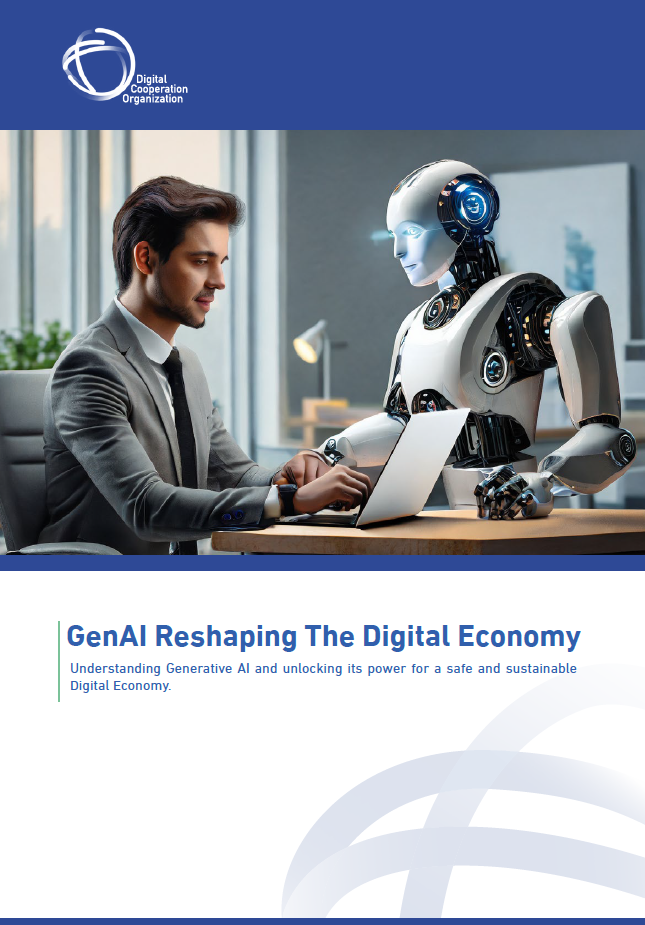
Generative AI (GenAI): Reshaping the Digital Economy
January 2024
Generative Artificial Intelligence (GenAI) is revolutionizing public and private sectors by creating and understanding diverse content types. In the public sector, GenAI enhances public service delivery, provides reliable information, and aids decision support systems for policymakers, fostering digital economy growth. In the private sector, applications range from customer engagement and market research to language translation, promoting scalability and cost-effectiveness for sustainable revenue generation that is key to building a sustainable digital economy.
In this white paper, we explain various GenAI challenges, including ethical, data privacy, security concerns, trust deficits, bias, and the need for comprehensive regulatory frameworks. Despite these challenges, GenAI attracts venture capital investments, outperforming other startup sectors. The global GenAI market is projected to grow from USD 8.65 billion in 2022 to USD 188.62 billion by 2032. We also describe how GenAI models benefit sectors like smart agriculture, digital industries, healthcare, and education, improving efficiency.
We also detail policy recommendations for stakeholders, including governments, international organizations, businesses, and civil society to guide them in contributing to enhance the growth of the digital economy. Such recommendations are centered around ethical guidelines, early adoption, national GenAI strategies, incentives, awareness campaigns, and standards development.
In conclusion, GenAI demands a delicate balance between innovation and regulation, acknowledging its potential economic impact. The Digital Cooperation Organization (DCO) plans to integrate GenAI into its future initiatives, recognizing its significance in enhancing the DCO Member States’ readiness for AI adoption in all sectors of life. This aims to promote multi-stakeholder deliberations to expand recommendations and foster responsible GenAI implementation.
